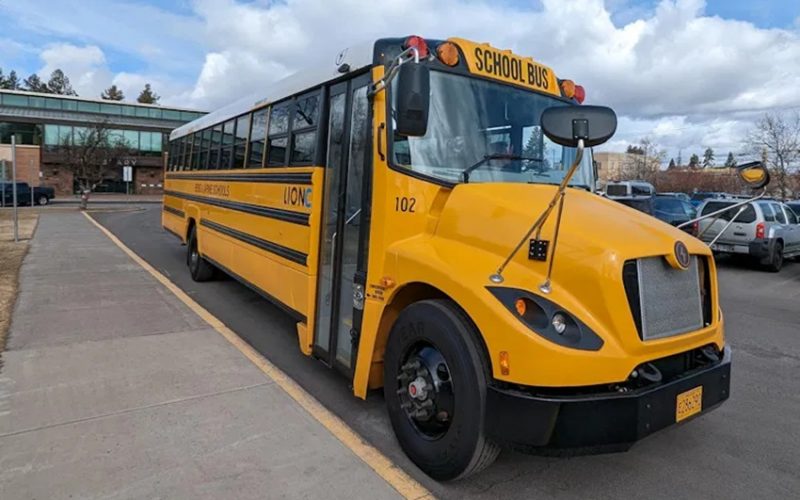Salem, OR – Oregon is set to expand its fleet of electric school buses, with the announcement of $6.5 million in federal funding aimed at replacing 26 diesel-powered buses. The grant, issued by the Environmental Protection Agency (EPA), will help the state retire outdated diesel vehicles, invest in additional electric vehicle (EV) chargers, and train mechanics in the Beaverton and Reynolds school districts to maintain electric buses and their charging infrastructure.
The funding is part of the Clean Heavy-Duty Vehicles Grant Program, which was established under the Inflation Reduction Act of 2022. It will be distributed to Oregon’s Department of Environmental Quality (DEQ) in early 2025, with a spending window of three years. The move comes as part of the state’s broader push to reduce transportation-related emissions, which are the largest source of greenhouse gas pollutants in Oregon.
Senator Ron Wyden, Oregon’s senior U.S. senator, emphasized the importance of the initiative. “Creating opportunities like this with school buses to reduce those emissions is key to tackling this issue head-on in Oregon and nationwide,” Wyden said in a statement.
In addition to the new funding, Oregon has already received more than $64 million in rebates and grants since 2022 through the same EPA program, enabling the state’s school districts to purchase around 200 electric buses. The Beaverton School District, the third largest in the state, has been at the forefront of this transition, purchasing the first electric school bus in Oregon and now operating the largest fleet of electric buses statewide.
The district’s experience with electric buses has shown clear financial benefits. According to district data, electric buses have approximately one-third the operating costs of their diesel counterparts and are half as expensive to run compared to propane-powered buses.
The shift to electric school buses is seen as a critical step toward reducing harmful air pollution. Diesel and heavy-duty gas-powered buses are major contributors to asthma, cardiovascular diseases, and other respiratory issues, especially among children. Moreover, the greenhouse gases emitted by these vehicles contribute significantly to climate change.
By investing in electric buses, Oregon aims to improve public health and reduce its carbon footprint. With the transportation sector responsible for the majority of the state’s greenhouse gas emissions, these new electric buses will play an important role in the state’s long-term climate strategy.
The EPA’s ongoing support for electric school buses also underscores a national push to decarbonize transportation. As Oregon’s schools continue to electrify their bus fleets, the state is positioned as a leader in the growing movement toward sustainable, clean transportation.











